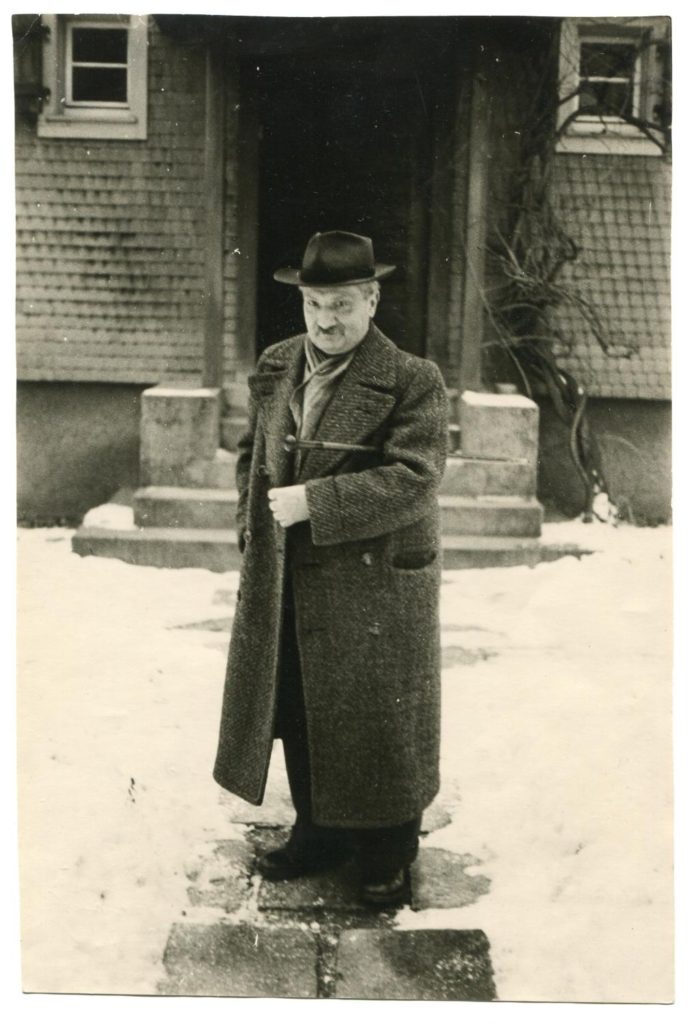In Being and Time (1927) Heidegger says that he wrote the book in order to “reawaken the question of the meaning of Being.” It’s important to pay attention to all the words in this phrase.
Heidegger’s question is not the one that Leibniz asked, namely “Why is there something rather than nothing?” That question asks for an explanation – a cause, a sufficient reason – of the fact that anything exists at all. Heidegger, on the other hand, wants to know what it means to say that something exists. Or rather, he wants to ask what it means. That implies that the meaning of Being is not well-understood, which, Heidegger thinks, is significant in ways we don’t sufficiently appreciate.
Asking “What is the meaning of Being?” is paradoxical in that the use of the word “is” in the sentence implies that the meaning of Being is already known. The meaning of a sentence such as “The scarf is blue,” for example, seems clear enough.
That isn’t to say that “is” is completely unambiguous. According to logicians, “is” as used in the sentence above is just one of four ordinary uses of the verb “to be”: predication (as in the sentence), identity, subsumption, and existence. Logicians use different symbols for each sense of “is” to remove the ambiguity, but in ordinary communication it is usually clear which sense is intended – if not from the sentence, then from the context.
Heidegger argues that each of the four senses derives from a more fundamental sense, although that sense has receded so deeply into the background that we’re not fully aware of it. Being, Heidegger says, means that something is present to to us in a way that makes sense. In Heidegger’s various formulations, it has been “uncovered,” “unconcealed,” “disclosed,” “granted,” or “bestowed.” To put it differently, Being is that which reveals. In Being and Time, that which reveals is our comportment – the “understanding of (the meaning of) Being” that’s embodied in our ability to differentially respond to the various entities in the world. For the later Heidegger, that which reveals is language, and changes in philosophical language over time track the variations on the Platonic understanding of Being that constitutes much of our spiritual history.
So the meaning of Being is available in a way, but it’s in our background understanding of what it means to be. Moreover, much of this background is non-propositional: it consists of abilities and dispositions, not just beliefs and assertions.
It’s thanks to the background understanding that entities can appear as entities at all, but our attention tends to be focused on the entities – so much so that we end up imagining that Being is a kind of entity. It isn’t: the meaning or intelligibility of things is not itself a thing, in the sense of an object with properties. However, our language is such that any phenomenon we try to describe, including that of intelligibility, will end up looking like an object. This is true even of Heidegger’s talk of Being as that which reveals. However we manage to express the meaning of Being, the essential thing about it remains elusive and withdrawn.
This is why the question of the meaning of Being must be “reawakened.” No matter how thorough our explanations of why the beings we encounter behave as they do, they won’t help us understand what it means for them to show up to us as beings in the first place. The first step in this awakening is to grasp that we don’t currently know precisely what we mean when we say that something exists – in other words, we must first acknowledge that the meaning of Being is in question.
What kind of question is it? A hermeneutical, interpretive one. In so far as philosophy asks the question of Being, philosophy is a hermeneutical enterprise. This is also something that the Western philosophical tradition has “forgotten.” So the awakening Heidegger has in mind is twofold: an awakening as to what we should be looking into (the meaning of Being) and as to how we should be looking into it (hermeneutically or interpretively).
Finally, why does all this matter so much? What makes it significant? It’s that understanders of the meaning of Being is what we human beings fundamentally are. We are where intelligibility – things showing up as the kinds of things they are – happens. We are not here merely to manipulate or control the entities that exist (we share that disposition with all living beings); we are here to shelter the meaning of their existence.


